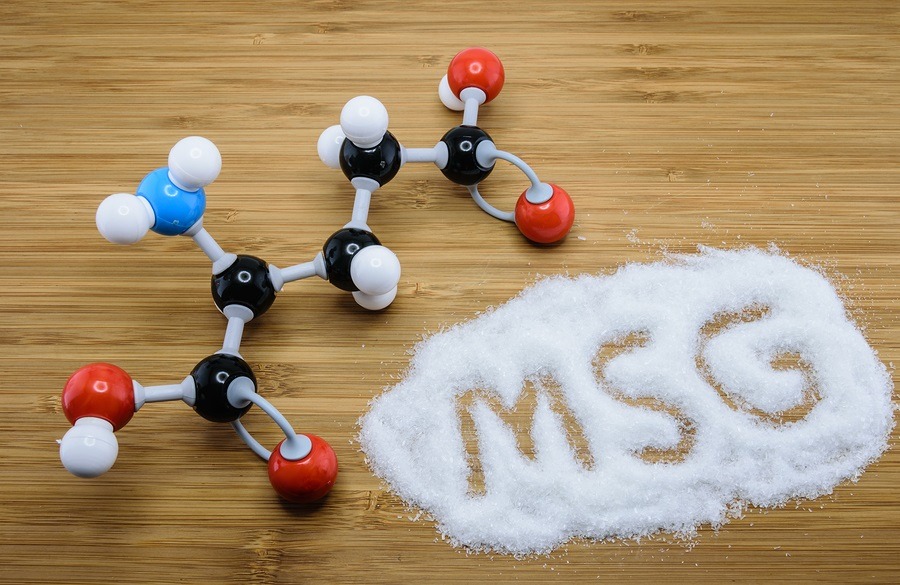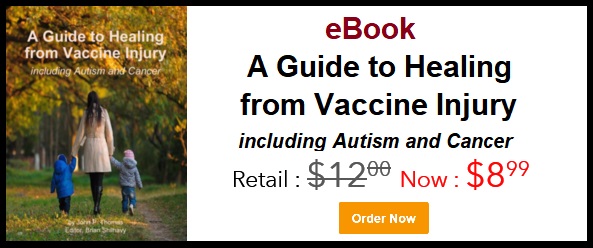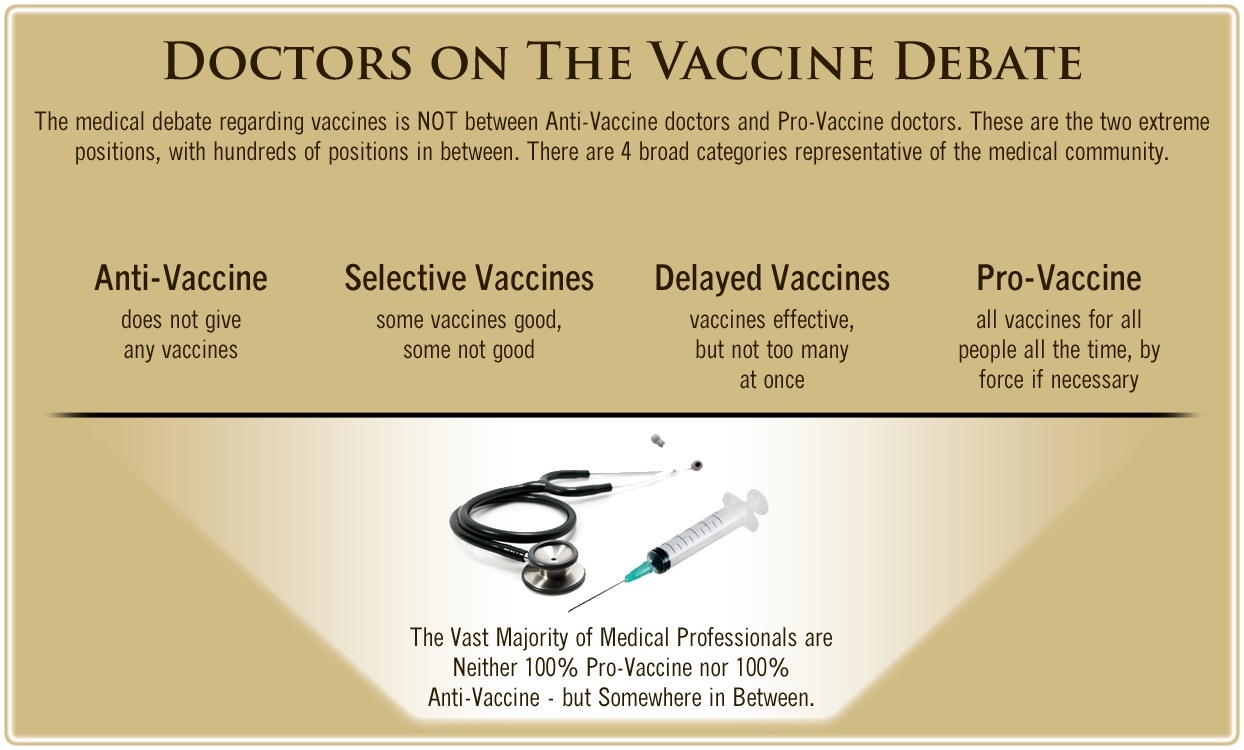
by Rishma Parpia
The Vaccine Reaction
When you think of monosodium glutamate (MSG), what is the first thing that comes to mind? More than likely it is Chinese cuisine, however, this same ingredient is also found in several other food products we use everyday. Almost all processed foods on the grocery store shelves ranging from soups to crackers to meats contain MSG to enhance their flavor.
MSG is also an ingredient in vaccines.
To be able to make fully informed decisions regarding vaccination for you or your child, it is essential to evaluate what is and is not known about vaccine ingredients and their short and long term effects on the human body.
What is Monosodium Glutamate (MSG)?
Monosodium glutamate, also known as monosodium salt, monohydrate and L- monosodium glutamate, is the sodium salt of a common amino acid known as glutamic acid (glutamate). [12] Glutamic acid is naturally present in our bodies and occurs naturally many foods such as tomatoes and cheeses. [2]
Glutamate is one of several amino acids linked into the chains of protein in the body. [3] In the body, some amino acids are free to float around by themselves while others are linked into proteins to perform vital functions. [3] For instance, some amino acids serve as neurotransmitters carrying nerve cell impulses throughout the body; they act as chemical messengers relaying news from one nerve cell to another. [3]
Glutamate is one such neurotransmitter that carries messages throughout the brain triggering nerve cells to fire. Other neurotransmitters such as gamma amino butyric acid then communicate with the firing nerve cells signaling them to cease firing when necessary, thus creating an important balance. [3] In the presence of excess glutamate, this balance tips due to overstimulation of nerve cells and causes them to die. [3]
The Role of MSG in Vaccines
The U.S. Centers for Disease Control and Prevention (CDC) Vaccine Excipient and Media Summary lists five vaccines that contain monosodium glutamate:
- Adenovirus
- Influenza (FluMist) Quadrivalent
- MMRV (ProQuad)
- Varicella (Varivax)
- Zoster (Shingles–Zostavax) [4]
So what has MSG got to do with vaccines?
MSG is used as a stabilizer in vaccines. Stabilizers are added to vaccines to help the vaccine remain unchanged when it is exposed to heat, light, acidity or humidity. [5]
MSG: An Excitotoxin Like Aspartame
Russell Blaylock, MD, a board-certified neurosurgeon and author of Excitotoxins: The Taste That Kills has extensively studied the effects of MSG on the brain. [6] He identifies MSG an excitotoxin. Excitotoxins are food and taste-enhancing chemicals found in many food products.
Aside from MSG, other excitotoxins include hydrolyzed vegetable protein, aspartame (a food sweetener sold on the market as NutraSweet) and cysteine. [6] Excitotoxins overstimulate certain neurons in the brain causing them to continue firing until they tire themselves and die. [6]
This overexcitement of neurons can cause brain damage of varying degrees and can potentially trigger degenerative diseases such as Amyotrophic Lateral Sclerosis (ALS, Lou Gehrig’s disease), Parkinson’s disease and Alzheimer’s, all of which develop gradually. [6]
Several studies have shown the link between MSG consumption and severe headaches as a side effect. [7] [8] A 2009 study published in the International Journal of Clinical and Experimental Medicine used dissociated mouse neuronal culture and cell injury assays to determine whether relevant concentrations of MSG induce cell swelling or death. [9] The study explains the mechanism behind MSG induced headaches that affect many people who have low tolerance to MSG. The authors state:
Using neuronal culture technique and cell injury assay, we studied the effect of MSG on mouse cortical neurons, a commonly used in vitro preparation for cell injury studies. We demonstrated that incubation with MSG, at clinical relevant concentrations, induced swelling and injury of mature neurons. This finding may partially explain the headache induced by MSG intake. [9]
They go on to explain:
Glutamate is an endogenous neurotransmitter required for a variety of physiological functions of neurons. Increased release of endogenous glutamate has been suggested to play an important role in neuronal injury associated with a number of neurological disorders. [9]
The Verdict on MSG
It is clear that there are unanswered questions about the safety of MSG, not only as a food additive, but also as a vaccine ingredient.
According to the U.S. Food and Drug Administration (FDA), MSG is a “naturally occurring” substance since its basic ingredients are found in natures. [2] It is critical to realize here that “naturally occurring” does not mean that the food additive being consumed is in its natural form. It only means that the manufacturing process began with something found in nature but the question is: Does that make it safe for consumption or injection?
Although the FDA labeled MSG as “Generally Recognized as Safe” (GRAS) in 1959, since then it has acknowledged the existence of short-term reactions to MSG. [2] These include numbness, headaches, fatigue, disorientation and heart palpitations that some people who have low tolerance to MSG may experience after eating foods containing MSG. [2]
Similar to most vaccine ingredients that have not been tested separately for safety, the long term cumulative effects of injecting MSG into the body and how it interacts with other chemicals and ingredients in vaccines is not known. What is known is that MSG is an excitotoxin that can cause neurons to die. Until adequate testing is done, the verdict on using MSG in vaccines is unsettled.
References:
1 U.S. National Library of Medicine. Toxicology Database Network: Monosodium Glutamate. National Institutes of Health.
2 U.S. Food and Drug Administration. Questions and Answers on Monosodium Glutamate (MSG). U.S. Department of Health and Human Services Nov. 19, 2012.
3 MSG Truth. What Exactly Is MSG? MsgTruth.org Feb. 19, 2016.
4 U.S. Centers for Disease Control and Prevention (CDC). Vaccine Excipient and Media Summary. CDC.gov February 2015.
5 CDC. Ingredients of Vaccines – Fact Sheet. National Center for Immunization and Respiratory Diseases Feb. 22, 2011.
6 Blaylock R. Excitotoxins: The Taste That Kills. Albuquerque, NM: Health Press 1997.
7 Yang WH, Drouin MA, Herbert M, Mao Y, Karsh J. The monosodium glutamate symptom complex: assessment in a double-blind, placebo-controlled, randomized study. Journal of Allergy and Clinical Immunology1997; 99(6 Pt 1): 757-762.
8 Schaumburg HH, Byck R, Gerstl R, Mashman JH. Monosodium L-glutamate: its pharmacology and role in the Chinese restaurant syndrome. Science 1969; 163(869): 826-828.
9 Xiong J, Branigan D, Li M. Deciphering the MSG Controversy. International Journal of Clinical and Experimental Medicine 2009; 2: 329 -333.
Read the full article at TheVaccineReaction.org
Medical Doctors Opposed to Forced Vaccinations – Should Their Views be Silenced?
One of the biggest myths being propagated in the compliant mainstream media today is that doctors are either pro-vaccine or anti-vaccine, and that the anti-vaccine doctors are all “quacks.”
However, nothing could be further from the truth in the vaccine debate. Doctors are not unified at all on their positions regarding “the science” of vaccines, nor are they unified in the position of removing informed consent to a medical procedure like vaccines.
The two most extreme positions are those doctors who are 100% against vaccines and do not administer them at all, and those doctors that believe that ALL vaccines are safe and effective for ALL people, ALL the time, by force if necessary.
Very few doctors fall into either of these two extremist positions, and yet it is the extreme pro-vaccine position that is presented by the U.S. Government and mainstream media as being the dominant position of the medical field.
In between these two extreme views, however, is where the vast majority of doctors practicing today would probably categorize their position. Many doctors who consider themselves “pro-vaccine,” for example, do not believe that every single vaccine is appropriate for every single individual.
Many doctors recommend a “delayed” vaccine schedule for some patients, and not always the recommended one-size-fits-all CDC childhood schedule. Other doctors choose to recommend vaccines based on the actual science and merit of each vaccine, recommending some, while determining that others are not worth the risk for children, such as the suspect seasonal flu shot.
These doctors who do not hold extreme positions would be opposed to government-mandated vaccinations and the removal of all parental exemptions.
In this article, I am going to summarize the many doctors today who do not take the most extremist pro-vaccine position, which is probably not held by very many doctors at all, in spite of what the pharmaceutical industry, the federal government, and the mainstream media would like the public to believe.






Leave a Reply